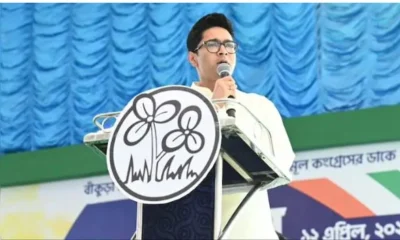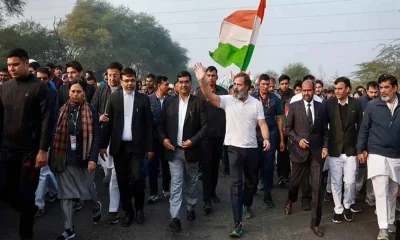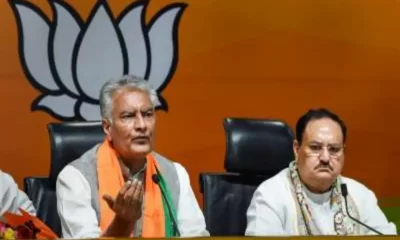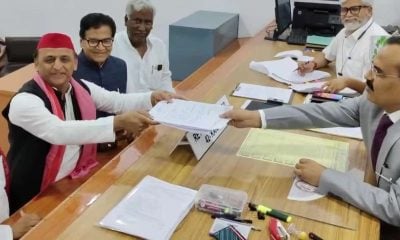[vc_row][vc_column][vc_column_text]Prem Singh Tamng was sworn in as the new Chief Minister of Sikkim on May 27, succeeding longest serving CM Pawan Kumar Chamling.
His party, the Sikkim Krantikari Morcha (SKM), had beaten the Sikkim Democratic Front (SDF) in the recently held Lok Sabha Elections and dethroned Pawan Kumar Chamling.
Prem Singh Tamang, better known as P.S. Golay, hailing from West Sikkim, has been a part of the political scene in the State since the early 1990s. After joining the SDF in 1993, the 51-year-old won in the 1994 Sikkim Assembly elections from the Chakung constituency, beating Tika Gurung of the Sikkim Sangram Parishad (SSP) by a margin of 1606 (28.33% of the total) votes. He assumed the role of the Minister for Animal Husbandry, Ecclesiastical and Industry Department soon after, serving till 1999.
In the 1999 election, he won by a margin of 1152 votes against Gurung in Chakung. He was chosen to be the Minister for Industries and Animal Husbandry for the next five years. His winning streak continued in 2004 as he won against Satish Mohan Pradhan of the Indian National Congress (INC) by an overwhelming margin of 6501 (91.59% of the total) votes registered in the constituency. This time, he served as the Minister for Building and Housing Department.
The crack between Golay and the SDF began to appear soon after his victory in the 2009 elections. Despite winning the Upper Burtuk constituency against INC candidate Arun Kumar Rai by a margin of 4563 votes, and being offered the role of the Chairperson of Industries Department – he rejected the proposition. On December 21, 2009, after a Rolu picnic event, he declared himself a dissident MLA of the party – heavily criticising its ‘failure to deliver on promises, alleged corruption and nepotism’. He maintained his absence in the annual Rolu picnic event from that year on.
In Upper Burtuk, he won in a closely-contested election by a slender margin of 573 votes against his former party member D. R. Thapa. However, he lost to Tilu Gurung of the SDF in Namthang-Rateypani by a margin of 1155 votes. Golay-led SKM secured 1, 26,024 votes and won 10 of 32 seats in the state Assembly elections — signs of a shift from the dominance of the SDF party.
Between 2015 and 2016, his party lost seven MLAs to the SDF and Golay was disqualified from the Sikkim Legislative Assembly and convicted on the grounds of ‘misappropriating government funds’ worth Rs 9.5 lakh between 1994 and 1999 — during his association with the SDF. He was sentenced to one year in prison with a fine of Rs 10,000. It was only in August 2018 that he was released from the jail and resumed campaigning with SKM.
Golay’s SKM party manifesto for the 2019 elections included promises like providing government jobs to the unemployed, loan waivers up to Rs 5 lakh for farmers and the unemployed and stopping the Citizen Amendment Bill from being enforced.
(With Inputs from The Hindu)[/vc_column_text][/vc_column][/vc_row]
























